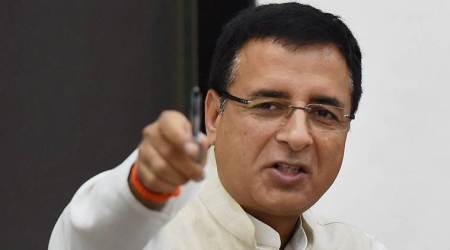 The future of Bihar is more important than the future of Nitish Kumar. (File photo)
The future of Bihar is more important than the future of Nitish Kumar. (File photo)
Nitish Kumar could be an ardent follower of John Maynard Keynes and Paul Samuelson, both of whom had reportedly said, “When my information changes, I change my mind. What do you do?” Notwithstanding the criticism about his alliance with the BJP, Nitish could draw some comfort to conclude that facts and information have indeed changed. What are these?
First and foremost, in the public perception there has been a deterioration in the security environment. The compulsions of alliance politics, in which the RJD has been an important catalyst, have led to the somewhat lax law and order with excessive interference in the police machinery. Consider the table on convictions between 2006 and 2017. It brings out clearly that the alacrity of the criminal persecution system and the ability of the prosecutors to secure convictions have rapidly come down. Anecdotal evidence reinforces these perceptions, notwithstanding efforts by Nitish to arrest the slide.
Second, the growth rate in Bihar has plateaued if not declined. The New Bihar, a study edited by Nicholas Stern and this writer and released in 2013, depicted this dramatic change. Growth took off after 2005-06 with the average growth and per capita income increasing from a meagre average of 0.9 per cent during 1999-2005 to 10.4 per cent between 2006 and 2012. The accompanying chart reveals that having achieved the high point of 20 to 21 per cent growth rate in 2010 and 2011, it declined in the subsequent years. This may have been due to the lack of a coherent and coordinated approach to governance, owing to the absence of coordination between the different departments and agencies, namely those headed by the JD(U) and RJD.
Third, financial rectitude and transparency are central to investor confidence. Morality and probity in public life secure social support and enhance credibility. Financial rectitude and focus of development have been central to the evolution of Nitish’s unique political identity. Compromising either of these would devalue what Nitish has stood for in public life. Incidentally, both financial rectitude and development focus are also unique to Prime Minister Narendra Modi. It is not surprising that the two leaders have come together. Nitish recognises that identity politics has stymied a transformative social agenda. The malleability of a politician who practices identity politics can be masked only by robust development outcomes. Secularism cannot become an alibi to mask the deeply corrosive impact of financial malfeasance. Neither can it override development compulsions.
What next? In the near term, Bihar must pursue five important initiatives.
First and foremost, it must go back to the drawing board and revisit some of the earlier initiatives. The Raghuram Rajan Committee constituted to look into the backwardness of states had evolved a composite development index. This multi-dimensional index was inter alia based on per capita income, education, health, poverty, female literacy and urban and financial inclusion. It ranked Bihar at the near bottom of the development pyramid. This was done by measuring Bihar’s distance from the national average on multiple criteria. The effort should be to enable Bihar to match the national average on some key development parameters over the next few years.
Second, Prime Minister Modi during the 2014 campaign announced a special Bihar package of 1.25 lakh crore for multiple infrastructure projects. A special cell was constituted in the PMO to monitor the implementation of the Bihar package. Given other distractions, its rigorous implementation deserves renewed attention. I would propose the constitution of a joint implementation machinery involving both the Centre and the state to oversee implementation of this package.
Third, Bihar’s growth in the past depended substantially on enhanced public outlays. This emphasis will no doubt continue, due to higher plan allocation and the PM’s special Bihar package. The new alliance positions Bihar better to secure what can be called a peace dividend. The synergy between enhanced security and private investment flows is well established. Further, given that India is increasingly becoming a competitive investment destination, there must be a concerted attempt to attract foreign capital. Bihar’s untapped and rich tourism potential and large central investments in North Bihar could attract foreign capital. The new emphasis on skill inculcation and employment can facilitate the creation of manufacturing hubs and start-ups and private entities can generate jobs. This could stem outward migration.
Fourth, given Bihar’s abundance of labour, establishing competitive industries must be a priority. The NITI Aayog has identified some labour-intensive industries, some of which could be located and developed in Bihar. A special task force under the chief minister’s office could be formed to set up labour intensive hubs with a focus on exports.
Fifth, concerted action on key social infrastructure, namely health and education, is needed. Massive investment and upgradation of educational institutions are necessary to meet the needs of the state’s young population. The government should constitute a special team to devise ways to turn Bihar into an educational hub. Technical education institutions should be built or upgraded. A massive teacher training programme is also necessary. Similarly, Bihar can become a health destination. Health infrastructure should be built to meet the state’s own needs as well as to ease pressures elsewhere. If Bihar can develop education and health hubs, it will make a decisive difference to India’s growth strategy. We need innovative thinking and out-of-the-box solutions to make this happen.
Bihar’s political climate is presently amenable to realise these initiatives. The governments at the Centre and the state share a common vision and will seek a renewed mandate on development outcomes. Electoral politics in the state can’t ignore caste and class compulsions. However, the development matrix can be a clever blend of both.
Nitish and Deputy CM Sushil Modi shared a positive chemistry in the past. Even in the revised context — wherein the BJP is a resurgent force with a pan-India presence — this chemistry could prove decisive. Nitish has rightly concluded that there are no eternal allies or perpetual enemies. “Our interests are eternal and perpetual and these are our duty to follow,” he had said. History will judge Nitish on his ability to build a future and not letting it be a hostage of the past.
The future of Bihar is more important than the future of Nitish Kumar.







